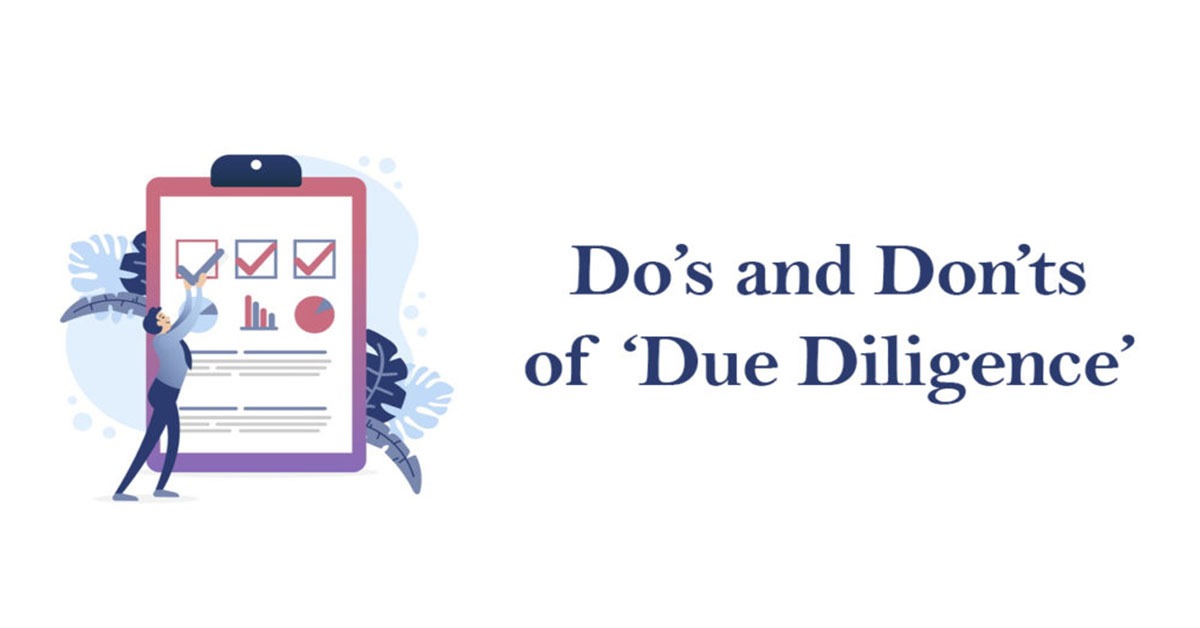Do’s and Don’ts of ‘Due Diligence’
As a business owner you may have built a framework of a growing startup, you have gained dedicated customers so far and looking to gain more stability in the coming months. In this whole process, when everything is going okay, you may have thought of expanding by pulling more investment from the market! Well hold on, there’s the catch. The first question you need to ask before you look for further funding is whether your company is ready to survive the due diligence process.
During the past 7+ years of working with various startups, the journey has been very exciting, to say the least. Setting up of processes in a complete IT environment, mapping risks and rounds of Due Diligence from Investors for funding. Due Diligence has become the buzz word in the startup ecosystem and there are many theories, beliefs and myths around the same.
Due Di犀利士
ligence bifurcated under two heads – Financial Due Diligence and Legal Due Diligence. As the name suggests. Financial Due Diligence mostly deals with Business Plans and Current and past financials. However, it also includes study various aspects of the business, in terms of customer concentration, vendor concentration, cohort analysis etc. and compliance aspects like Direct and Indirect Taxes. On the other hand, Legal Due Diligence would concern itself with legal protection of the company in terms of contracts, IP, domain etc. and compliance related to various regulations – companies act, labour regulations, shops and establishment act, FEMA, RBI etc.
The idea is to determine possible exposure of the company in terms of any interest or penalty becoming payable to any regulatory authority at a later date.
As per DataLabs by Inc42 estimates, the total recorded funding in H1 2019 ($5.85 Bn) was 16.64% higher than the median half-yearly funding amount of $5.01 Bn (2014- H1-2019). However, in the context of deal count, a downward trend in the number of funding deals in H1 2019 can be observed.
Institutional Investors tend to invest in companies who are well past the early growth stages. As such, they can examine substantive data in their assessment and check its validity. It’s only when a company has achieved a certain level of tangible traction that they can reasonably run analytics on it, in the hope of predicting the eventual outcome and the risks involved. The more number of years the company has run, implies more data, more due diligence, and easily predictable outcomes.
As a young startup company, one tends to have less tangible evidence available for checking. This means whatever checks would be carried out will mostly be formulaic. Soit’s important for you to carry out thorough due diligence. Financial due diligence in particular allows the investor to assess all financial aspects of a potential acquisition to determine what the benefits, liabilities, risks and opportunities are.
Remember an investor who will be interested to invest in you and your idea, would take calculated risk to help the company grow and reach a desired height. And just here, DueDiligence can work as a shield against this risk.







